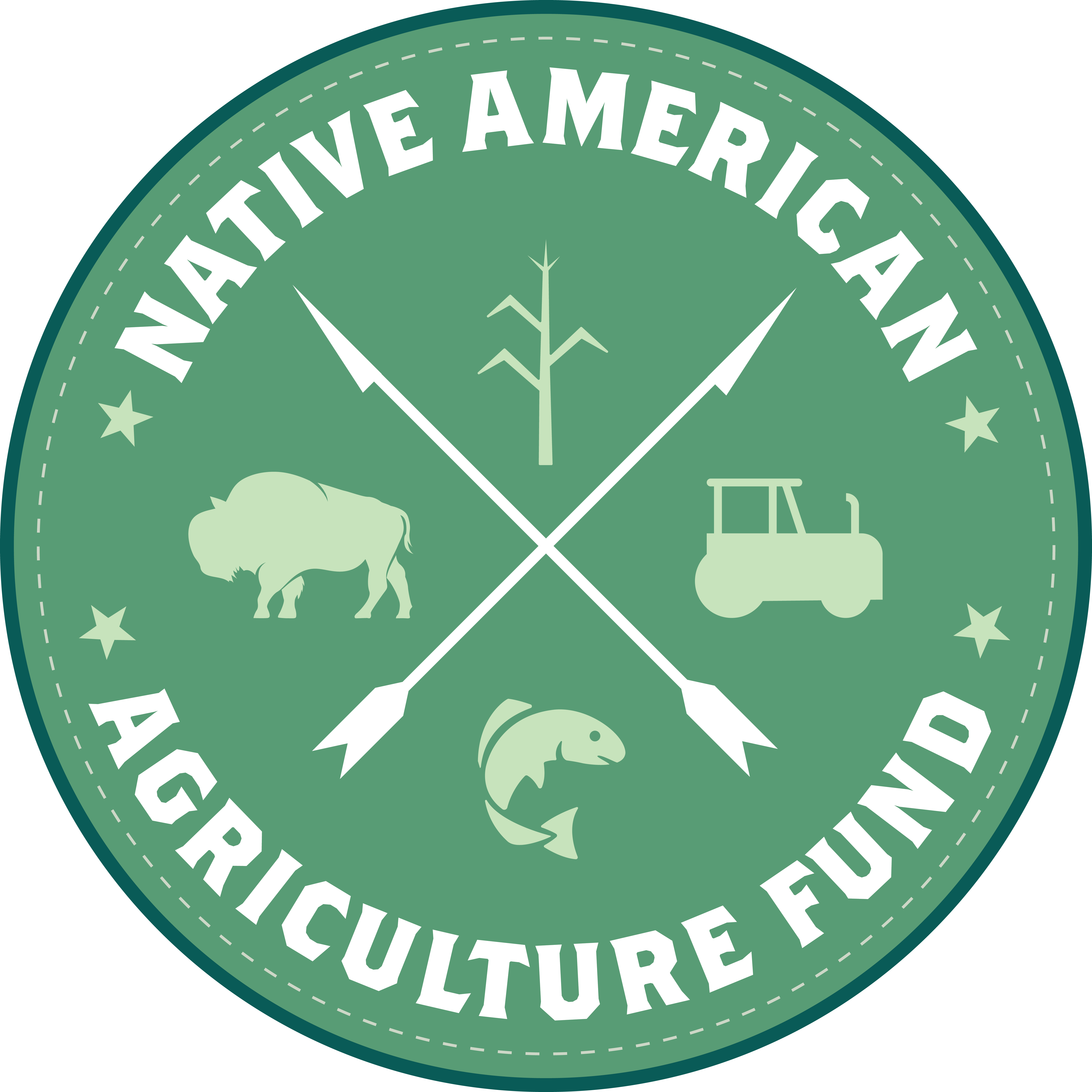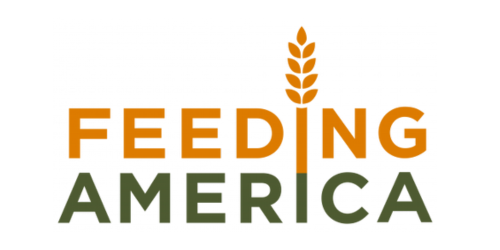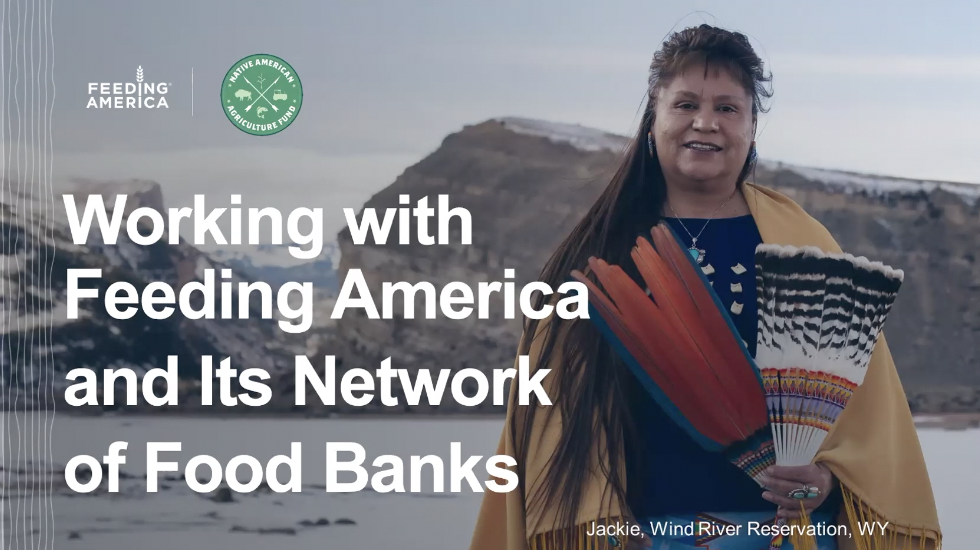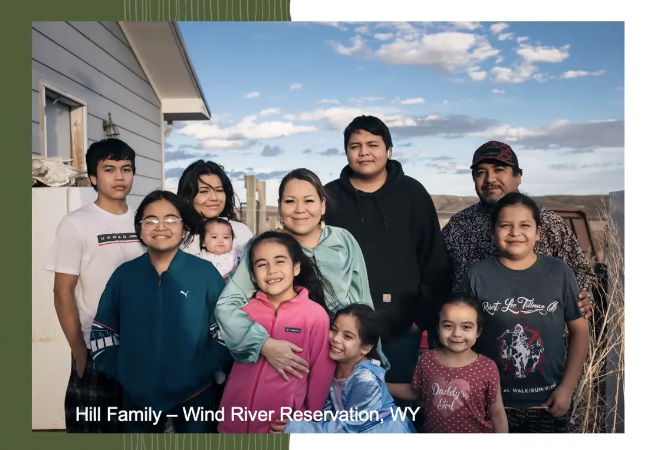NAAF & FEEDING AMERICA
NAAF x Feeding America Webinar Series
Strengthening Indigenous Food Access and Partnerships with Food Banks
Feeding America and the Native American Agriculture Fund (NAAF) proudly partnered to host a two-part webinar series, Working with Food Banks, to foster stronger relationships between Native food producers, Tribal governments, and the national food banking network. The educational webinars seek to highlight resources that address food insecurity gaps in Tribal communities and support economic opportunities for Native producers through localized food systems.
Learn more about Feeding America’s work to fight hunger nationwide by visiting FeedingAmerica.org.
Webinar 1:
Working with Food Banks Pt. 1 – Indigenous Food Supplier Opportunities
In this video, we dive into the world of food banking — what it is, how food banks source their products, and why it matters. We also explore how Indigenous food producers can become suppliers for food banks, helping to strengthen food security and support Native communities. Whether you’re an Indigenous producer, food sovereignty advocate, or simply curious about how food systems work, this overview offers valuable insights and practical steps to get involved.
Webinar 2:
Working with Food Banks Pt. 2 – Tribal Partnerships and Collaboration
In part 2 of this informational two-part series, NAAF and Feeding America joined forces to dive into how food banks through Feeding America leverage Tribal partnerships to strength regional food systems while improving food access to Native communities. Insightful discussions highlight success stories from across the nation, including Tribal-led distribution and cooperative models, and explores opportunities for Native producers and Native youth engagement in food security initiatives.
“This collaboration with Feeding America is about more than putting food on the shelves – it’s also about strengthening regional food systems that center Native producers as essential to feeding our communities. By investing in localized supply chains and culturally relevant food access, we can ensure all communities, especially those in rural and Tribal areas, have access to food that nourishes both body and community and supports long-term economic resilience.”




